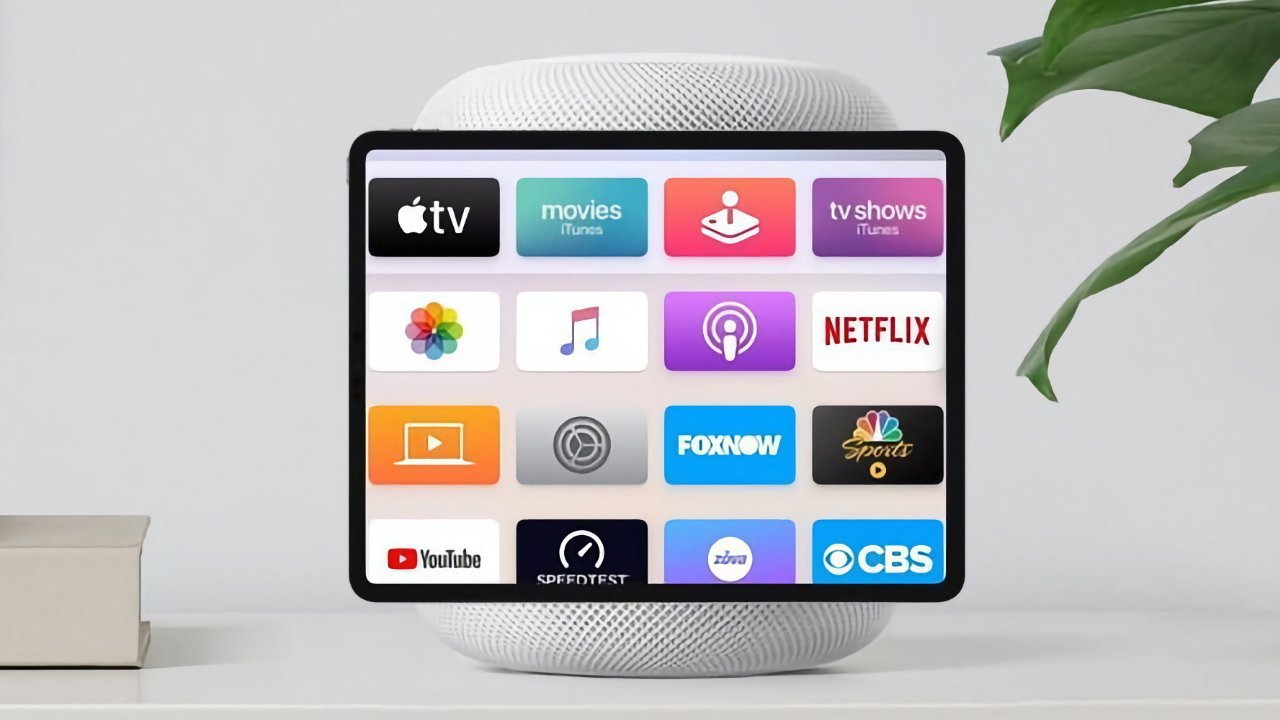The much-rumored HomePod with a display has been delayed again, claims analyst Ming-Chi Kuo, but will include Apple Intelligence when it launches.
Claims of a HomePod with some kind of iPad-like screen affixed to it have been rumored for years, and most recently it's been referred to as a Home Hub. Kuo has repeatedly reported on its development, most recently claiming that it would be released in the first half of 2024.
"The mass production time of HomePod equipped with a screen has been delayed several times," writes Ming-Chi Kuo in his blog (in translation). "The first time was postponed from 2024... to 1Q25, and recently it was postponed to 2025 after WWDC/3Q25."
Kuo says that the delays have chiefly been down to software development issues. Beyond saying that the device will include Apple Intelligence, Kuo says only that this HomePod's focus will be on smart home functions.
On the hardware side, he says the device will have a 6-inch screen, and use the A18 processor as in the iPhone 16. He now also believes that the new HomePod will wirelessly connect to the Apple Home cameras he has previously predicted for 2026.
It would be peculiar if they didn't connect to an Apple home device, so this segment appears to be no more than supposition on Kuo's part. It's not clear whether the 2H 2025 date for the HomePod is solely another prediction.
Kuo has previously been clear that he is predicting the new HomePod rather than basing it on supply chain information. As with many of his most recent reports, though, he doesn't distinguish between prediction and information.
He does, however, claim that the market reaction to a HomePod with a screen is positive. He doesn't cover how he determined that, though, nor does he back up a claim that Apple expects to ship 500,000 by the end of 2025.
Separately, references to an Apple "homeOS" were spotted in a January 2024 update to tvOS. It's possible that such a platform may now launch alongside the Home Hub in 2025.
 William Gallagher
William Gallagher







-m.jpg)






 Andrew Orr
Andrew Orr
 Malcolm Owen
Malcolm Owen


 Wesley Hilliard
Wesley Hilliard





-m.jpg)




6 Comments
If you want a toasterfridge, then I suggest that you build your own by purchasing a toaster (iPad) and a fridge (HomePod) separately. Problem solved!
I remember when the next big thing was a revolutionary product that combined three distinct functionalities into one device: a widescreen iPod with touch controls, a revolutionary mobile phone, and a breakthrough internet communications device. Are you getting it? The new Homepod and breakthrough iPad are not separate devices...
I'm not basing this on supply chain information, either, but here's what actually makes sense, as opposed to whatever the Frankenpod is that Kuo is making up.
Apple will sell a home hub device that has the processing power to handle in-home, secure Apple Intelligence queries. The hub itself won't have a screen, and could simply be a box, like an AppleTV box. It will ship with one or two wireless screens that will have minimal processing power, and will function as dummy terminals for the Home Hub. If desired, additional screens for other rooms can be purchased at a fairly low cost.
The reason this makes sense is that it solves all the problems Apple currently faces if it wants to have an AI-powered HomeKit ecosystem. The problem starts with this: Processing hardware capable of carrying out Apple Intelligence queries is fairly expensive, so the hurdle for getting effective, powerful and secure AI in the home IoT space is prohibitive costs. Apple has already promised private, secure AI by keeping queries off the internet and out of the cloud, but thus far, the only Apple devices capable of onboard AI queries are recently manufactured personal devices: iPhones, iPads, and Macs.
That sets up a real barrier for Apple. For HomeKit to work well, you need to be able to make queries or issue commands from anywhere in the house. The one place where people don't reliably keep their iPhones, iPads and Macs with them is in the home. If you've left your devices in another room, they're useless for controlling your lights or blinds, much less AI queries. HomePods and HomePod minis stay where you put them, but thus far lack the processing power to do AI. So Apple has introduced a powerful new AI and with it, a next generation Siri, but no existing home yet has the hardware to run it throughout the house. It's simply not practical to expect consumers to shell out thousands of dollars to buy several of Kuo's expensive Frankenpod home hubs or worse, to replace all of their existing HomePods with expensive, new AI-capable HomePods, just to get up and running with this new technology.
Suddenly, without sacrificing privacy or quality, having an AI-powered home with next generation Siri costs a few hundred dollars instead of thousands. I don't know what Kuo is going on about, but it doesn't make as much sense as this.
I'm guessing it'll look like the pixar lamp but with an ipad and will have a similar personality.
Hopefully it'll be battery powered to move it with ease for different tasks, like in the kitchen for help with cooking, or on the coffee table to present karaoke lyrics, or on the desk to help with homework..